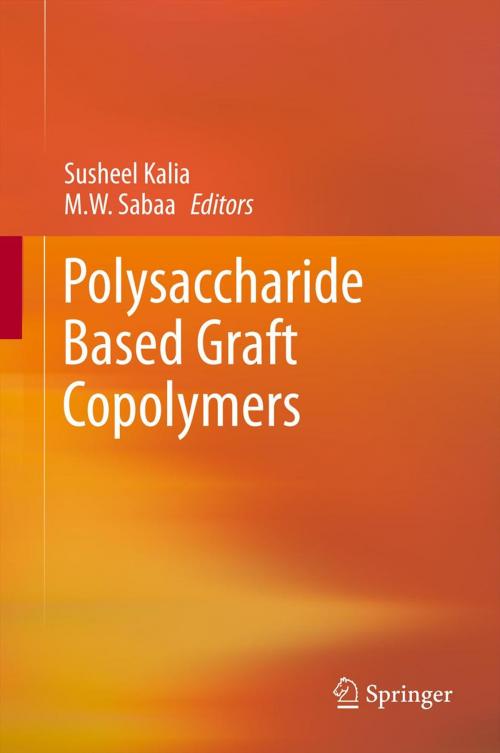Polysaccharide Based Graft Copolymers
Nonfiction, Science & Nature, Technology, Textiles & Polymers, Material Science, Science| Author: | ISBN: | 9783642365669 | |
| Publisher: | Springer Berlin Heidelberg | Publication: | May 23, 2013 |
| Imprint: | Springer | Language: | English |
| Author: | |
| ISBN: | 9783642365669 |
| Publisher: | Springer Berlin Heidelberg |
| Publication: | May 23, 2013 |
| Imprint: | Springer |
| Language: | English |
Renowned experts give all essential aspects of the techniques and applications of graft copolymers based on polysaccharides. Polysaccharides are the most abundant natural organic materials and polysaccharide based graft copolymers are of great importance and widely used in various fields. Natural polysaccharides have recently received more attention due to their advantages over synthetic polymers by being non-toxic, biodegradable and available at low cost. Modification of polysaccharides through graft copolymerization improves the properties of polysaccharides. Grafting is known to improve the characteristic properties of the backbones. Such properties include water repellency, thermal stability, flame resistance, dye-ability and resistance towards acid-base attack and abrasion.
Polysaccharides and their graft copolymers find extensive applications in diversified fields. Applications of modified polysaccharides include drug delivery devices, controlled release of fungicides, selective water absorption from oil-water emulsions, purification of water etc.
Renowned experts give all essential aspects of the techniques and applications of graft copolymers based on polysaccharides. Polysaccharides are the most abundant natural organic materials and polysaccharide based graft copolymers are of great importance and widely used in various fields. Natural polysaccharides have recently received more attention due to their advantages over synthetic polymers by being non-toxic, biodegradable and available at low cost. Modification of polysaccharides through graft copolymerization improves the properties of polysaccharides. Grafting is known to improve the characteristic properties of the backbones. Such properties include water repellency, thermal stability, flame resistance, dye-ability and resistance towards acid-base attack and abrasion.
Polysaccharides and their graft copolymers find extensive applications in diversified fields. Applications of modified polysaccharides include drug delivery devices, controlled release of fungicides, selective water absorption from oil-water emulsions, purification of water etc.















